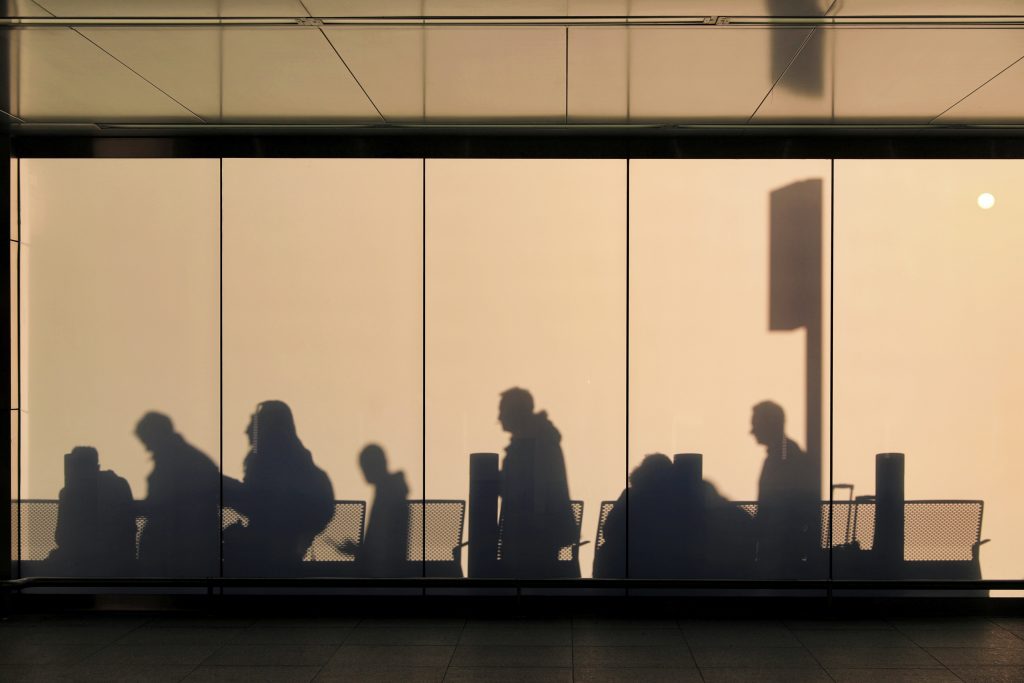News
Russia’s invasion of Ukraine fuels a refugee crisis that could help it win the war

The international focus of Russia’s invasion of Ukraine has been on its conventional military operations. While they’re important, that’s only one element of Russia’s plan.
Russian President Vladimir Putin himself acknowledged in an address to the nation that Russia’s intervention is not a strictly conventional campaign, but a “special military operation.”
Besides cyber warfare, refugees will be one of the irregular means employed by Russia. This includes both refugees within Russia’s own borders as well as the much larger number of Ukrainians already heading for Europe as Russia pursues its objective of detaching ethnic Russian areas from Ukraine.
Evacuated before the invasion
Russia’s use of refugees started before the official start of the war.
Before the invasion, the Russian-backed Ukrainian separatist states of Luhansk and Donetsk People’s Republics announced they were evacuating their civilian population to Russia.
They justified this action by alleging Ukrainian aggression and shelling of civilian infrastructure in the breakaway republics.
The Russian government didn’t pass up the opportunity to advance its objectives by demonizing Ukrainian authorities. Four days before the invasion, for example, Alexander Chupriyan, the acting head of the Russian Ministry of Emergency Situations, told the media:
“More than 40,000 people who were forced to leave Ukraine arrived in Russia. Now they are placed in the Rostov region in temporary accommodations.”
Russian news outlets extensively covered the influx of people to Russia from Donetsk and Luhansk, helping stoke Russian nationalism.
Putin needs support
The common refrain in western media is that Putin is a dictator. There have even been comparisons of Putin to Adolf Hitler.
These portrayals overlook that while Putin is authoritarian, he relies on the support of the Russian people to maintain his rule, and specifically Russian nationalists. This support might be increasingly fragile if protests against the Ukraine invasion in several Russian cities are any indication.
Developments since the collapse of the Soviet Union are critical to understanding contemporary Russia.
The 1990s were not kind to Russia. When the Soviet Union collapsed, the Russian nation lost its place at the centre of one of the world’s superpowers. Simultaneously, the country faced economic collapse, civil unrest and the loss of international respect. Putin, in fact, recently said that to provide for his family he had to take a second job as a taxi driver.
In addition, a significant number of ethnic Russians who had moved to different Soviet republics during the Soviet Union era, including Ukraine, found themselves cut off from the Russian state. While the successor states pledged to respect the rights of ethnic Russian minorities, most of them failed to do so.
For Russia, which went from being a superpower to not being able to protect ethnic Russians outside its borders in less than 10 years, it was a national embarrassment.
Putin leveraged Russian resentment
This popular resentment over the alleged mistreatment of Russia and Russians internationally catapulted Putin to power in 2000.
Since assuming the presidency, Putin has actively cultivated this sentiment within Russian society. He’s been able to address the alleged mistreatment of Russia internationally — Russia once again ranks as one of the more influential countries in the world.
The expansion of NATO into what Putin regards as Russia’s sphere of influence prevented him from adequately addressing the status of Russian minorities, particularly those in the Baltic region.
Ukraine is the one country where Putin has been able to address these issues.
The nature of Russia’s invasion of Ukraine has made the creation of refugees inevitable as most of them head for Europe.
Ukrainians are unlikely to receive substantial assistance from the outside world in time to prevent even more of them from fleeing the country.
Only avenue of escape is to Europe
War invariably produces refugees, whether internally displaced people or those who flee the country for safety. With Russian forces advancing from the south, north and east, the only avenue of escape is to the west and Europe.
Russia’s war objectives will also create a refugee crisis. While Putin stated that he doesn’t intend to occupy “Ukrainian territories,” he also stated that Russian respect for Ukraine’s independence doesn’t “cancel the right of nations to self-determination, enshrined in Article 1 of the UN Charter.”
Putin is talking about nations and ethnic groups, not the Ukrainian state. Given that there are significant Russian-speaking populations in eastern Ukraine, seizing control of this territory is one of Putin’s key military objectives.
If this occurs, those opposed to the new regime will also flee these territories and create a refugee crisis for Europe that could exceed the 2015 migrant crisis. As many as 1.3 million migrants, primarily from Syria, arrived in Europe to escape the civil war that ravaged their country, stretching European resources.
Europe’s need to support Ukrainian refugees could inhibit its ability to respond to Putin’s invasion. While Europeans deal with yet another refugee crisis and an influx of displaced migrants, Putin could consolidate his control of the Russian-speaking territories of Ukraine.
James Horncastle, Assistant Professor and Edward and Emily McWhinney Professor in International Relations, Simon Fraser University
This article is republished from The Conversation under a Creative Commons license. Read the original article.





















